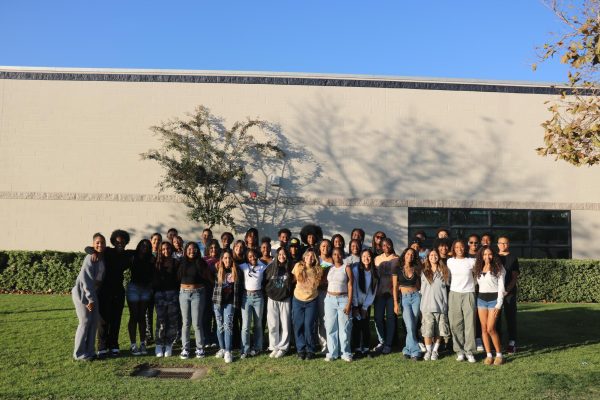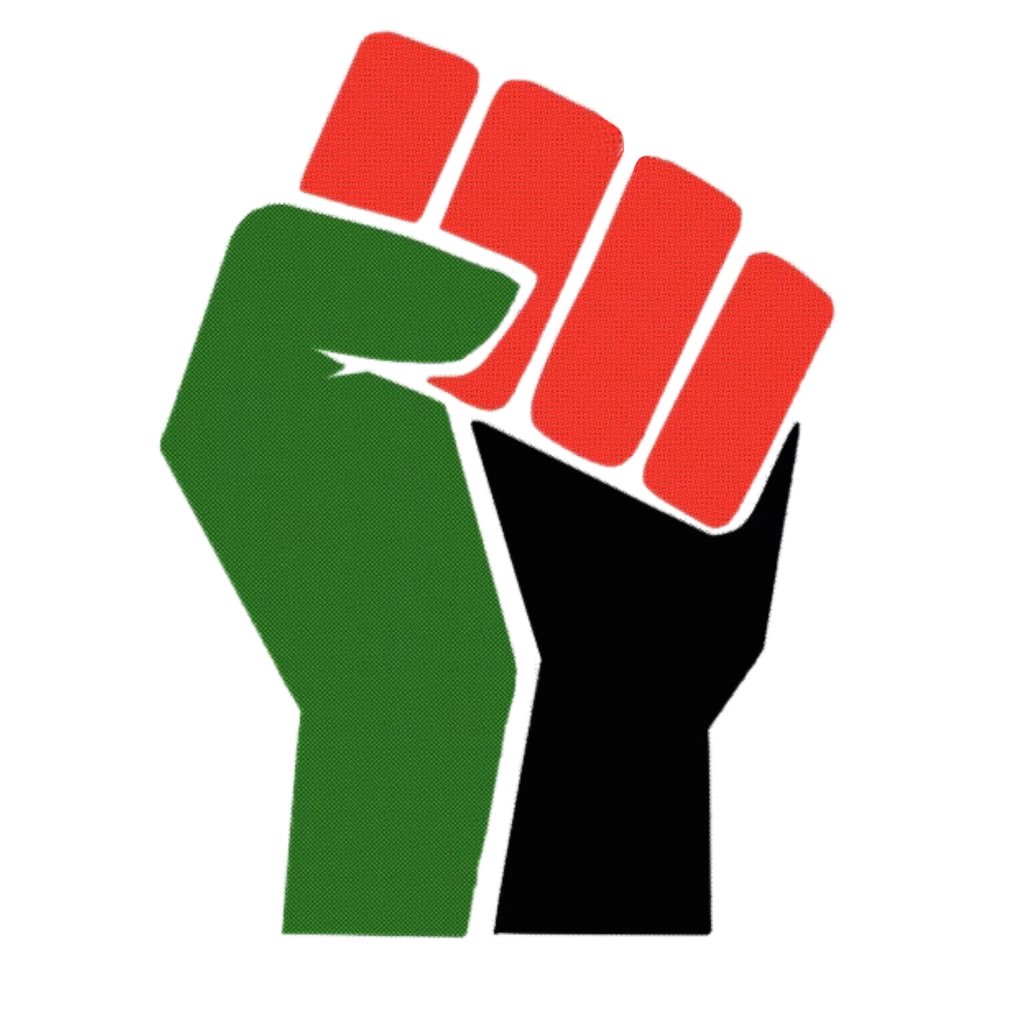Black History Month was declared nationally in 1976. It exists to honor African American history and accomplishments in the United States. Black history should be taught all year, but a month is needed because it is not taught in most history books.
Unfortunately, from my experience, it has never been done well. I am a Black teenager, and I have been hearing the same things since kindergarten.
The lesson was usually a video. In which slavery, the Civil Rights Movement, segregation, and a few important figures were all discussed. Then it flashed forward to President Obama in “post-racial” America in 2008. Either that or my teacher did not acknowledge Black History Month at all.
A lesson meant to honor me just made me feel upset, sad, and strangely empty. I feel like the lesson acted as though racism was solved and it did not exist anymore, which I knew very well was not true.
The past is extremely important, but not connecting it to present-day events does not explain the current racism Black people are facing.
For example, Abraham Lincoln is often credited for creating the Thirteenth Amendment to the Constitution and abolishing slavery. However, the Thirteenth Amendment states slavery is still legal in the United States if the person committed a crime.
This is usually carried out in prisons. This relates to mass incarceration and the school-to-prison pipeline which disproportionately targets Black individuals.
Slavery allowed this country to accumulate wealth with free labor for hundreds of years, and in order to maintain this wealth they incarcerate people to do labor that they don’t want to pay for. Despite this, African Americans have still not received reparations.

History is not complete without mentioning recent developments. Exclusively talking about the past neglects the fact that Black people are still fighting for equality today. More current topics surrounding race need to be discussed.
An example is representation for Black people in the media. There is a severe lack of Black individuals in popular television, magazines, books, et cetera. When there are Black characters, they are often stereotypes of us being aggressive, dangerous, obnoxious, or greedy.
These misrepresentations are incredibly harmful. Stereotypes prevent people from organically interacting with others, especially when their preconceived notions are negative. This is also what causes racial profiling. If students could recognize these stereotypes, they could be more conscious of the content they are consuming.
There is also a serious effect on Black consumers who may watch this media. They may start to reduce themselves to stereotypes or feel they will not be accepted by others unless they fit curated expectations.
Another topic I want mentioned is cultural appropriation. Cultural appropriation is when someone offensively takes items from a culture they do not belong to without understanding its history or meaning or giving credit to said culture. This includes non-Black people saying the n-word.
I have seen a lot of people assume taking elements of African American culture will make them seem cooler or funnier. First of all, this is objectification and reducing an entire group of people to an aesthetic or personality trait. Second of all, this is incredibly offensive considering Black people may minimize their Blackness to fit in with others, or for safety, also known as code-switching. However, a non-Black person does not have to worry about that.
There should be an emphasis on doing personal research and ensuring an action is cultural appreciation and not appropriation.
Additionally, there should be education on how to speak up against racism from your peers. The responsibility of speaking out against racism in group settings should not depend on the attacked racial minority.
We should not have to explain why a comment is hurtful or offensive constantly. It is tiring and depressing, especially when nobody else in the conversation speaks up for you.
The theme of Black History Month is decided by the Association for the Study of African American Life and History (ASALH), the company started by the creator of Black History Month, Carter G. Woodson. For 2024, the theme is “African Americans and the Arts”.
This year, especially, I want focus on the contributions Black Americans have given creatively. Individual people that have made an impact in their creative fields, but also how African American culture has contributed to industries like art, dance, music, fashion, beauty, hair, books, movies, television, and more. They serve as creative hubs for Black individuals to find familiarity and innovation within their culture. Despite the lack of support from mass media, Black artists continue to persevere and create amazing work and an astounding impact on pop culture. Their artistic talent needs to be recognized.
Along with this, I want figures who have done important work in other departments like STEM, sports, and politics to be acknowledged. It can also be an inspiration for Black students interested in those fields.
An English teacher at our school, Mrs. Lemons, has a lesson plan that will touch on stereotypes of Black families.
Her class of eleventh graders will read “A Raisin in the Sun” by Lorraine Hansberry, who is the first African American female author to have a play performed on Broadway. The play is about a family living in a predominantly Black neighborhood on the south side of Chicago who come into a sum of money.
They have the choice of buying a house in a better-funded area, but they will be moving into a predominantly White neighborhood. The book ends without the family making a decision. So, she follows it up with the documentary, “Crisis in Levittown, PA”. It is a documentary from the 1950s interviewing families in a White neighborhood after a Black family moved in.
Mrs. Lemons said, “I also use the Anti-Defamation League’s Pyramid of Hate in conjunction with the documentary so that the students can see where the neighbors fall in terms of their racial bigotry.”
Even though the documentary was conducted in the 1950s, the students can recognize stereotypes of Black families that are still alive today.
These lessons would make Los Osos better as a community. Education is so important since so many students have reported experiencing racial discrimination on this campus.
Upon discussion, non-Black students may begin to question their own biases or actions. The perpetuation of racism often comes from ignorance. A lack of education can cause people to preserve racist beliefs because they do not understand why it is harmful and untrue.
I think these lessons will help Black students feel understood and validated. I never understood why some racist occurrences were happening to me until I started to learn Black history. If Black students do not conduct their own research or their parents do not teach them, they may never learn.
As a Californian school, Los Osos needs to exercise its full right to educate students about race in schools. States like Florida, Georgia, and Mississippi want to restrict talking about race-related history, even though it is an essential part of America’s history, and ignoring it does not progress anything forward.
Another solution to combating racism at schools is making sure the educators are educated about racial topics. If teachers are required to make lesson plans for Black History Month, not only will they be educating the students, but they will be educating themselves as well. This will help them understand their students better and ensure their students feel safe and respected in their classrooms.
Thankfully, our school is already making progress on the teacher and administration side of bettering the experience of students with diverse identities. Los Osos’s Assistant Principal of Education Services, Dr. Rucker, said, “We have something called DEIA. It stands for diversity, equity, inclusion, [and accessibility]. [Another is] Inclusive Pathways. We’re trying to do more to educate ourselves as a staff and create representation for all students. And make sure that all of our students feel comfortable and welcome on our campus.”
There are also several groups led by Black students and parents hosting informative and fun events for Black History Month. Los Osos’s BSU(Black Student Union) and AAPAC(African American Parent Advisory Council) have been holding events throughout the month and throughout the entire school year to educate and empower the student body.
A leader of Los Osos’s Black Student Union (BSU), Junior Destinee Knight, said, “Black History Month gives us the opportunity to teach people and if we wanna see change, we have to keep people educated.”
A Black History Month lesson should make Black students feel proud and like their concerns are validated. It is an opportunity to shine a much-needed light on Black issues – it needs to be taken full advantage of.

